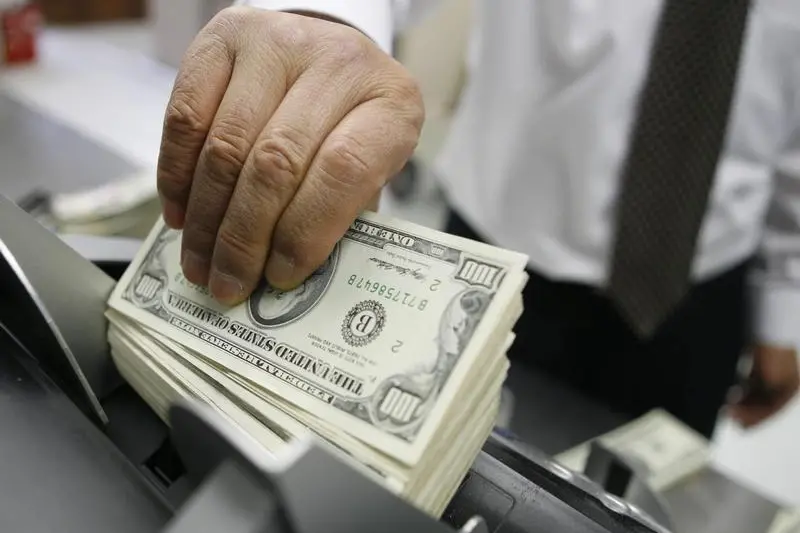PHOTO
BEIRUT: The World Bank is preparing $700 million worth of projects in Lebanon in addition to the $1.5 billion already paid out, the organization said Wednesday. The World Banks regional director Saroj Kumar Jha said that the new funds had been allocated to support the economic and social stability of Lebanon, according to a statement released by the Finance Ministry.
The funds are meant to help the education and health sectors, as well as support the establishment of a special economic zone in Tripoli.
The World Bank officials comments came following a meeting with Finance Minister Ali Hasan Khalil and United Nations Deputy Special Coordinator for Lebanon and Officer in Charge of UNSCOL Philippe Lazzarini, in which the trio discussed joint projects.
The European Union also pledged new funds aimed at improving the management of waste saying that Lebanon received $23.6 million to deal with the trash crisis in Mount Lebanon and Beirut.
Speaking at the Grand Serail in Beirut at the launch of the second phase of the EU-funded waste management project, Minister of State for Administrative Development Inaya Ezzeddine said that Lebanons waste problem was no less serious than the countrys political or security crises.
The announcement came a day after Environment Minister Tarek Khatib denied the existence of a trash crisis in Lebanon in response to a recently published Human Rights Watch report that raised concerns over the ongoing mismanagement of waste.
We are not experiencing a trash crisis, Khatib said in an interview with OTV. There is no fear that the trash will come back to the streets.
A representative from the ministry claimed Wednesday that the environmental issues confronting Lebanon stemmed mainly from Syrian refugees and Israels 2006 bombing campaign. Lebanon faces major environmental problems resulting from global conflicts in the region, Dr. Joseph Asmar said at the United Nations Environment Assembly in Nairobi, according to a ministry statement.
The biggest issue Lebanon suffers from is the pollution caused by the Israeli aggression in July 2006, which led to a large oil spill that polluted the beach and the sea, he added. The second problem is the issue of pollution resulting from the Syrian exodus. The proportion of displaced is more than 37 percent of the population, which is the highest rate in the world.
Asmar then called on the assembly to develop a plan to deal with the environmental impact of refugees.
Lebanon has had no solid waste management plan since the 1975-1990 Civil War, during which the state broke down and informal dump sites began sprouting across the country.
Under the two projects, the EU is scheduled to oversee the construction of eight sanitary landfills that will help Lebanon process medical waste and residues from slaughterhouses in Beirut and Mount Lebanon.
EU Ambassador to Lebanon Christina Lassen tweeted after the event to announce the launch of the solid waste program.
But #Lebanon needs the law that sets the legal framework for waste management and we urge Parliament to pass it soon, she added.
Last weeks HRW report on trash in Lebanon, based on data from the Environment Ministry and the United Nations Development Program, found 941 open dumps across the country as of 2017, including 617 municipal solid waste dumps.
It found that trash was burned at more than 150 dumps at least once a week on average. HRW found that open burning is a direct result of the Lebanese governments mismanagement of its solid waste.
Although the state has failed to agree a national plan for solid waste for decades, the issue came to a head in 2015 when the streets of Beirut were left with piles of rubbish after the dump site for the capital in Naameh, south of Beirut, closed with no alternative available.
Copyright 2017, The Daily Star. All rights reserved. Provided by SyndiGate Media Inc. (Syndigate.info).





















